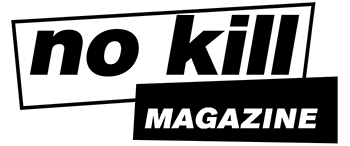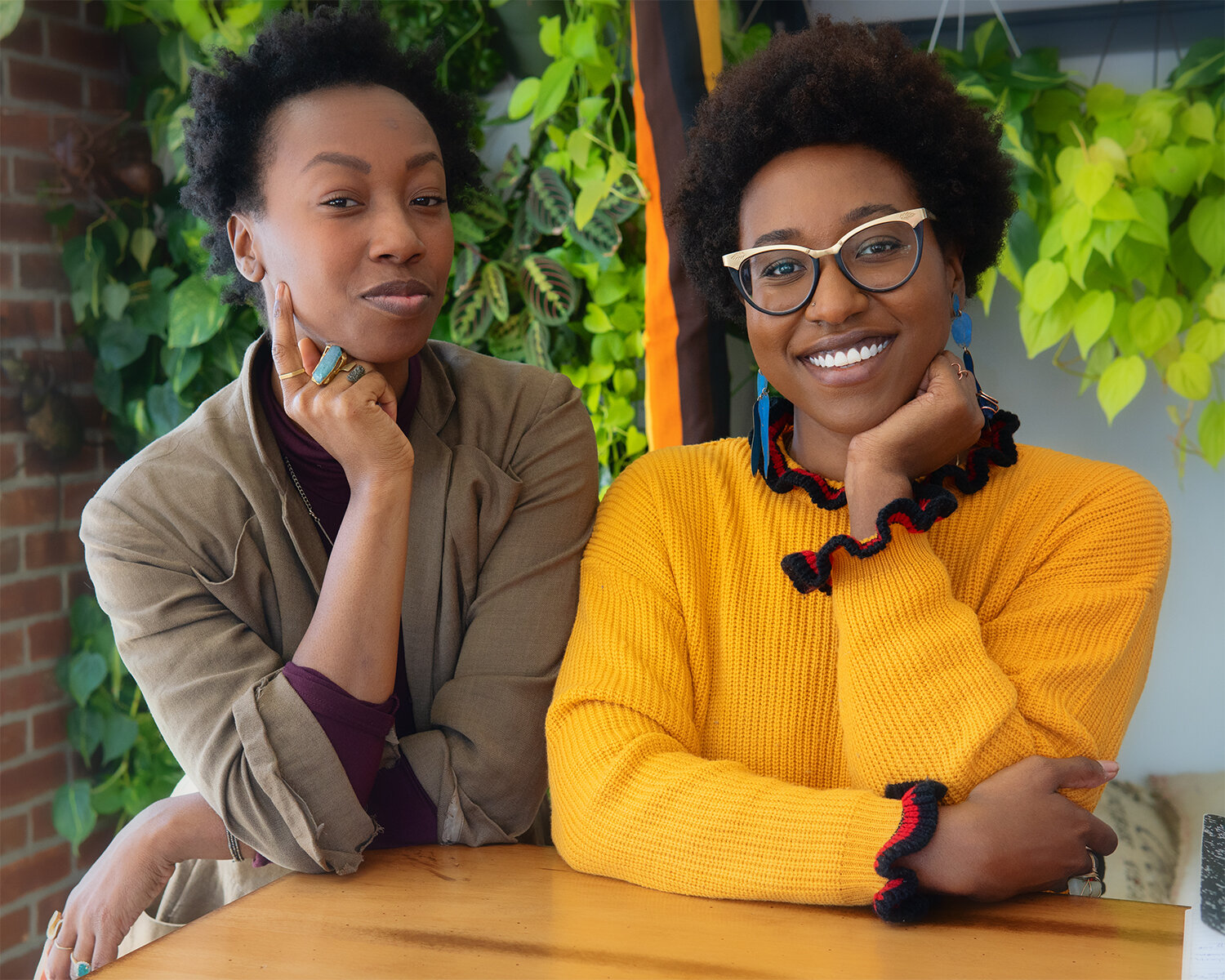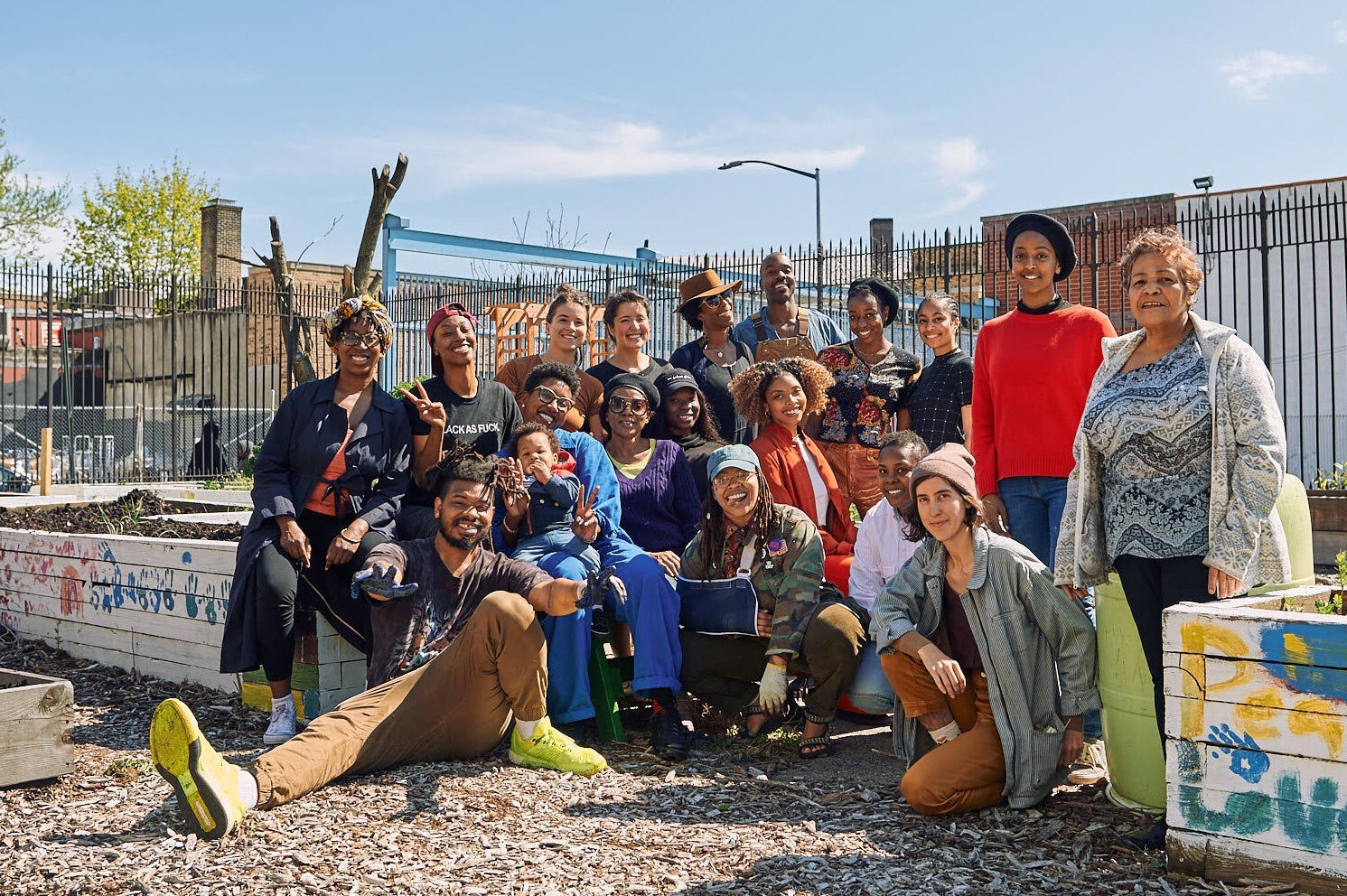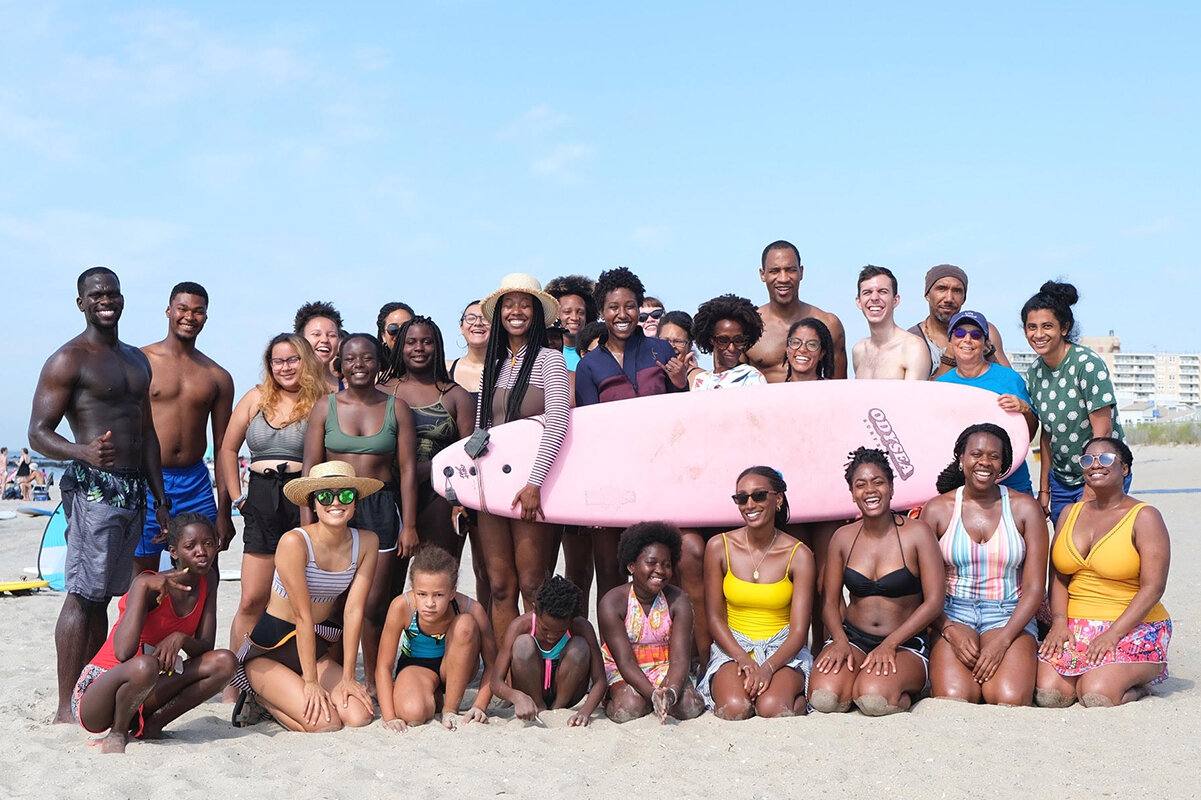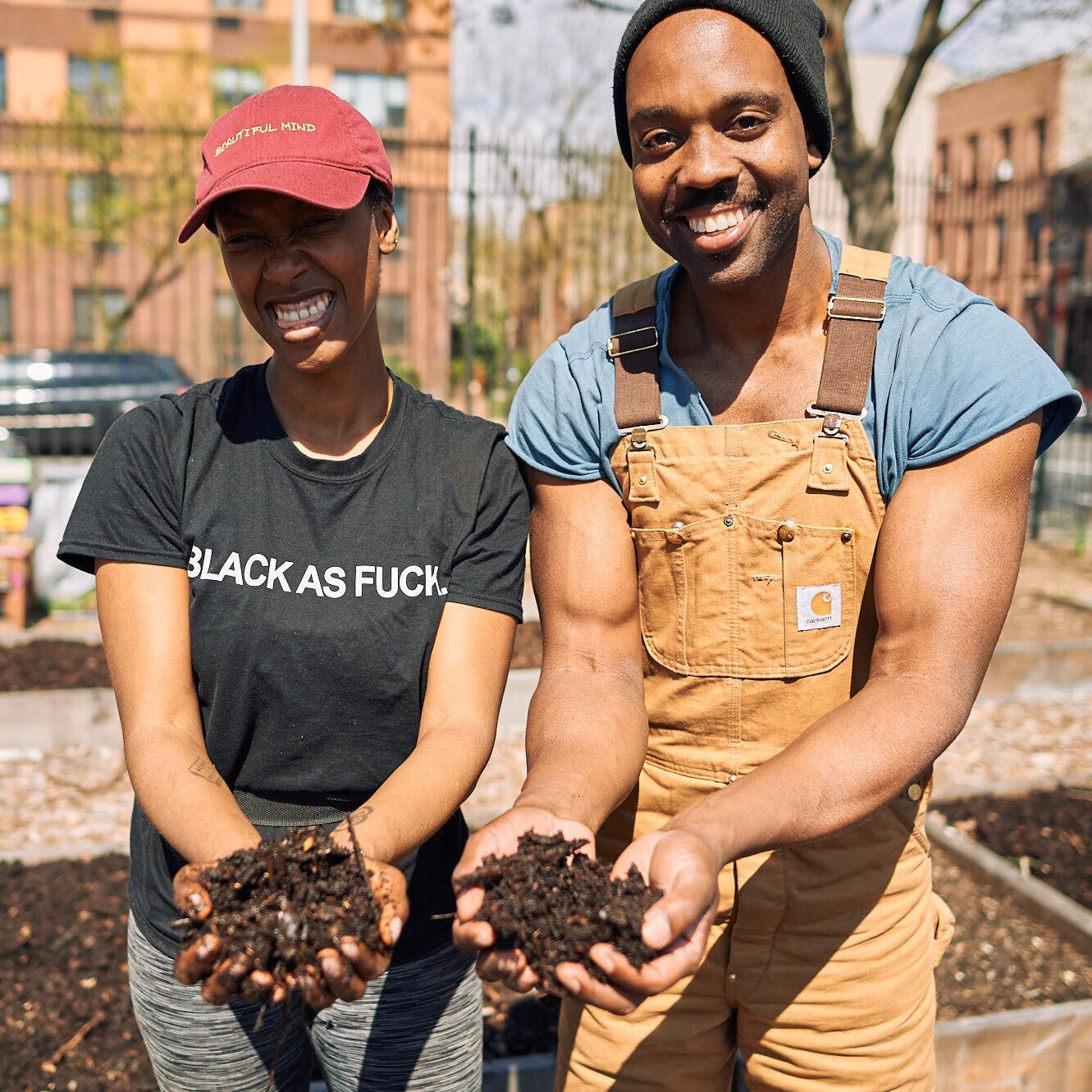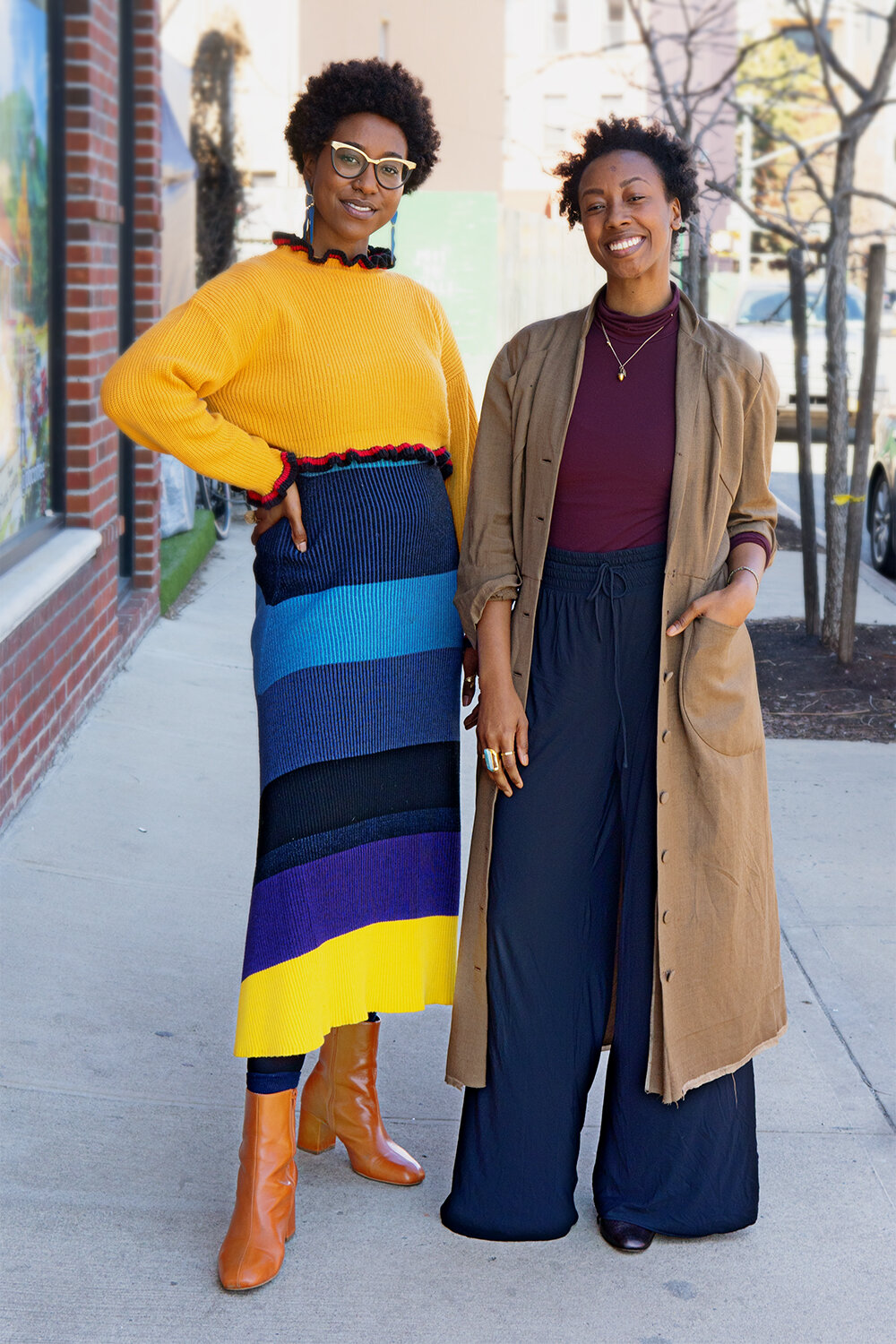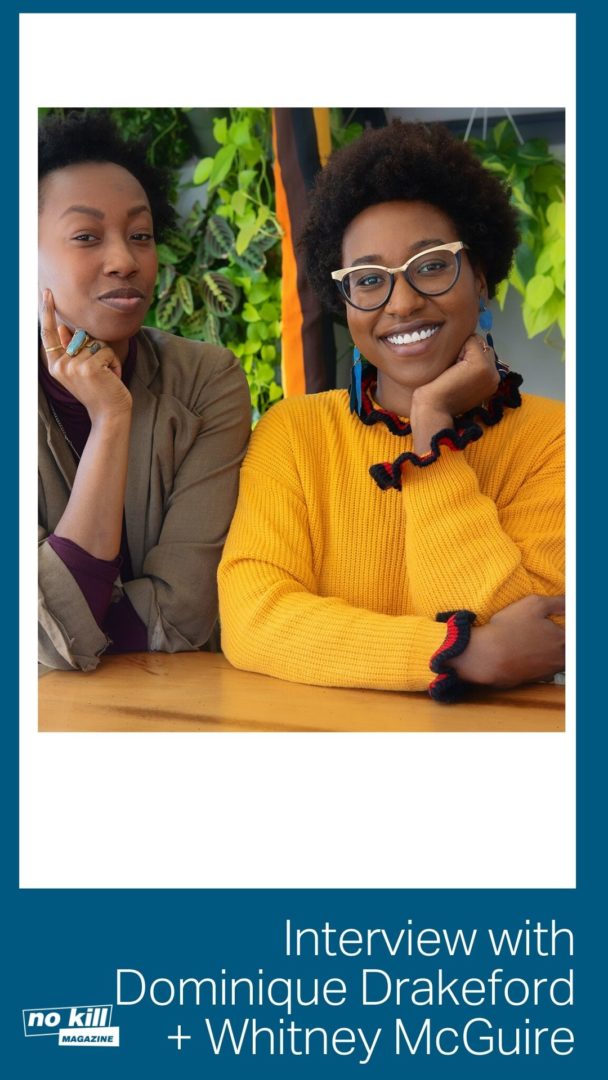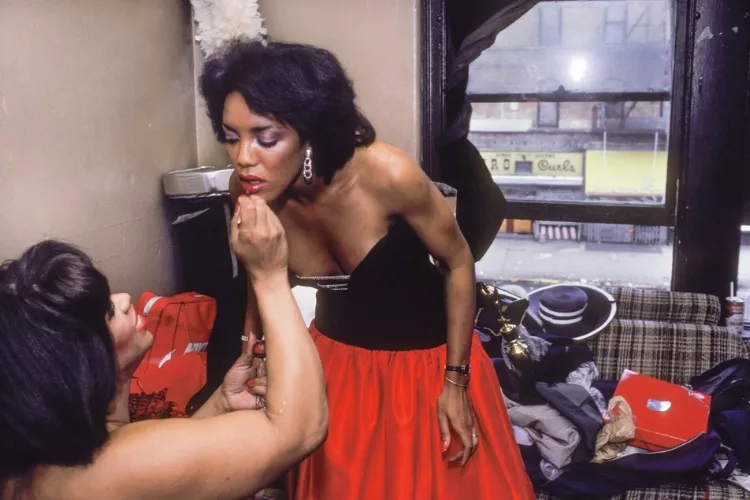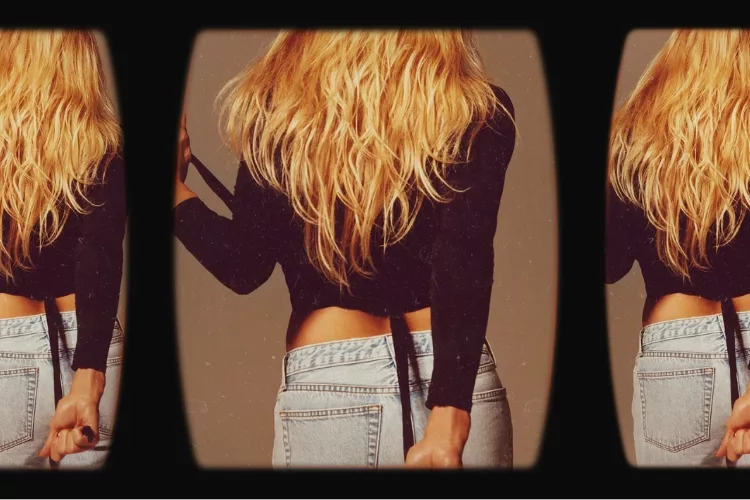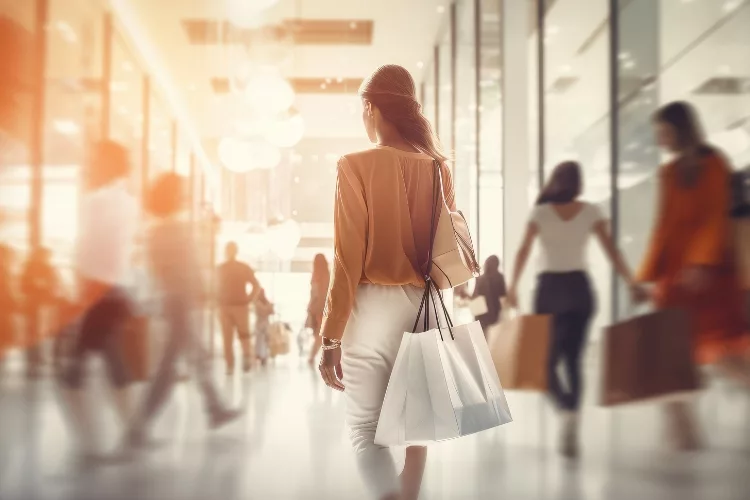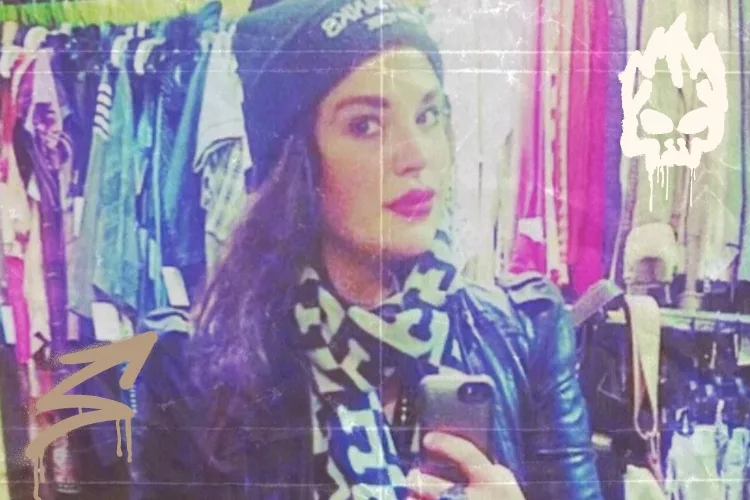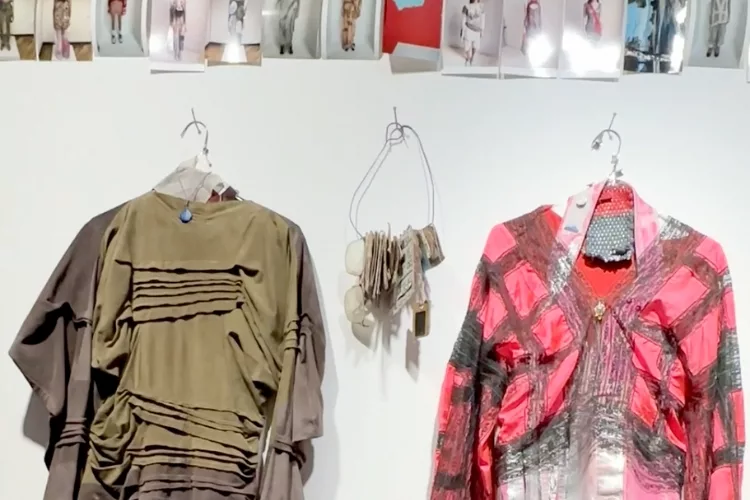Dominique Drakeford + Whitney McGuire
Talk Sustainable Brooklyn, Putting Yourself First & Divine Interventions
Chances are when you think of “sustainable fashion” you think of someone like Stella McCartney. Or Emma Watson. Or maybe Vivienne Westwood. And when you think of holistic approaches to wellness you might think of Goop and Gwyneth. Or The Honest Company and Jessica Alba. Whether you thought of one of these women or someone else, chances are you thought of someone white. But the reality is that many of the sustainable practices that are being rediscovered today by the culture at large were central to the cultures of Black Indigenous People of Color. That this is ignored is a remnant of colonization which led to both annihilation and appropriation of cultural practices.
Which is why the work of Sustainable Brooklyn is so important. As it says on their website:
The current landscape of sustainability omits the voices and values of Black Indigenous People of Color (BIPOC), perpetuates appropriation, and thrives from a colonial framework. Through resources, events, workshops and curriculums, we provide tools to shift sustainability literacy to encompass cultural existence and celebration, economic liberation, self healing, land sovereignty and community preservation. With a focus on fashion, food and wellness, we collaborate and partner with a myriad of allied stakeholders in various industries, while amplifying the work and voices of BIPOC. We are the SOURCE for the evolution of sustainability.
I recently had the opportunity to sit down with Dominique Drakeford and Whitney McGuire, the co-founders of Sustainable Brooklyn. They shared with me their thoughts on what real inclusivity looks like, the importance of listening to your gut and their surprising connection to one another –among other things!
Community Volunteer Day – Good Life Garden Bushwick, Brooklyn
How did Sustainable Brooklyn start?
Whitney– I met Dominique when I was on maternity leave a couple of years ago and we were introduced by a mutual friend on Instagram. I posted a photo showing a sustainable fashion workshop I was leading that I designed for students in Las Vegas. I specialized in fashion law when I was in law school so sustainability was sort of always professionally a buzz word but we were approaching it from fair trade, from labor issues, from a lot of international conversations around fast fashion. So that’s sort of what I translated to these design students and when I moved back to Brooklyn I realized there was still this visceral sensation I would get when I would leave these professional spaces and I couldn’t really pinpoint it. I just knew that something was missing and I started really thinking what I wanted my legacy to be and I realized that there is a direct correlation between the sustainability of my community and these conversations that we’re having over here.
So how can we merge them? And then I’m introduced to Dominique and our first conversation we’re finishing each other’s sentences, like we’re on the same wavelength both meeting at the intersection of frustration of the omission of our voices and our cultural perspective of the indigenous roots of sustainability. Like how are you going to leave out whole groups of people who, but for the transatlantic slave trade, would not have had their connection to the earth disrupted? And so we met at this point of…peak absurdity and we were like “let’s be the change that we wanted to see.” Once we met in person we started mapping out sustainable Brooklyn just naturally flowing from our thoughts.
One thing I noticed is that it seems like you just started. Many people when they see an injustice or something they want to change they get stuck. They think “Oh, I have to make a business plan, I have to do all these things before I do the thing that matters” and you all just started right away…
W– It was intentional right? It is based on literally our life experiences and our life experiences are informed by our community that we come from. And our community is informed by the histories that we collectively share as Black and indigenous people in America so it’s all really just ripe to be formulated into something that we translate to the rest of the world because we’ve been living it for generations.
“And I think too just knowing that our ancestors and elders created space and created movements with a grass roots ethos and inherently it was just natural for us to do that. We felt this energy so creating this business -and I would even push it and say it’s a movement – was just a natural flow.”
In your DNA
D– Yes it was in our DNA and I think that’s important especially if we’re talking about entrepreneurship for people to understand. Obviously we have to be structured to a certain degree but it’s equally important to be fluid.
So within Sustainable BK you are working on doing things within the community?
W– Yes we’ve created a grassroots movement that engages the community through education and experiences along with partnering with different organizations. For example, we host monthly volunteer days to connect our community with organizations and people from the community whose work enhances sustainability. Our last volunteer day was in February. We toured a landfill outside of Philly in partnership with The Slow Factory. Our March tour to a Brooklyn recycling plant was postponed due to COVID-19.
We also hold elemental symposiums – Earth Air Fire and Water. We’ve already done Earth and Air are gearing up for Fire and Water this year. Those are the ways in which we engage our community from the bottom up. And then top down we partner with brands and different stakeholders who may not have access to our community to really partner with and figure out ways to utilize the talent and resources that are rich within our community.
BIPOC Free Surf Lessons and Beach Clean Up Day we organized with members from the BIPOC surfing community. Rockaway, Queens
How do you see Sustainable BK ideally developing?
D– I think with our goals we are both proactive and reactive. We’re reactive in that we’re going to continuously listen to the needs of the community and those needs may shift. But ultimately we do want to be a hub of information: a hub of access across agriculture, fashion and wellness all while amplifying and promoting the work of Black and Brown indigenous communities globally. And be able to seamlessly translate that information and share our version of sustainability and how this needs to be the new standard of what sustainability looks and feels like through that platform. It’s going to continuously evolve but it all falls around how we’re redefining sustainability and giving agency to the communities who need and deserve it most.
W– Yes we see connecting policy makers with corporate America with community stakeholders a key part of what we do. We also want action to be at the forefront of our conversations so for example at our next symposium we’re creating a hackathon: we want to see what it would be like to incubate a question in a group and figure out what the resources are collectively that we can contribute to creating an action item or a solution.
Can you give us an example of a question or an issue you might work on on a hackathon?
W– I think one of the main issues we’ve been thinking about is how within the fashion industry or sustainable fashion we see sustainable fashion up here in terms of price point and affordable fashion is down here, and affordable fashion is also down here in terms of how its impacting the earth and people. We want to incubate the question of what does the flattening of that system look like? What does the flattening of that gap look like for working class people and for people who are privileged to over-consume? What does that look like across the board and how can we offset the costs of sustainable fashion and create a value within the community and the people who wear it?
Dominique Drakeford & Kofi Thomas, Founder of Good Life Garden
That’s such a great question and I love the inclusivity of that approach! Speaking of sustainable fashion, how do you define it? Or is that a way to even look at it?
W– Sustainable fashion’s an oxymoron but that’s just because fashion as we know it operates counter to the system that we’re trying to promote. It doesn’t have to. It doesn’t have to be structured the way it’s structured.
Sustainable fashion can exist as a truth but the fashion industry has to absolutely change.
D– Yes and you have to understand it didn’t used to be that way. To go back to the inherent truth of the ideology of sustainable fashion you need to look back to Black and Brown indigenous communities. They were able to create regenerative systems in fashion being close to the land, being close to the culture and just philosophies of identity and well-being and that way of being IS sustainable fashion. What we have today is an industry. So trying to slowly -or quickly – trying to interject those ancestral philosophies and make it applicable to a modern society, that’s how we get back to a real truth about what sustainable fashion can look like.
W– The goal is to have a wholly inclusive sustainability movement where everyone sees themselves represented or sees some way they can contribute and they’re not shamed for it and they’re not made to feel like they have to buy their way into it (the sustainable fashion movement)
D– The sustainable fashion movement still adheres to the mainstream fashion movement standards which are totally extractive: black and brown bodies are disposable, stealing intellectual property…like alot of the sustainable movement is the same old same old with a bow on it.
I love the vision and knowledge that you two are sharing through Sustainable Brooklyn. But alongside that you both have things you do separately: Dominique, you’re also the founder of MelaninASS – a website/Instagram that highlights people and brands by POC that are within the sustainable framework and you’re an influencer/speaker in your own right. Whitney you’re a lawyer and a mother and a speaker on sustainability as well. I don’t want to ask about work/life balance because I don’t believe in it, but I am curious how you all manage to do it all and how these different parts feed into one another.
W– I think with my kid I definitely spoke to him when he was baking and I was like “look I’ve got a lot of big ideas that I still need to fulfill and you are an asset and”…you know just like talking to him and making sure he knows. I can work from home which is nice. We’re privileged enough to be able to afford childcare so I’m able to work from my office in the city sometimes as well. And then he’s the reason I created Sustainable Brooklyn so he definitely motivates me to get up and do this work when I feel like everything sucks! And my law practice a lot of my clients are artists and they are POC and many of their issues are the same issues that I see across all industries so it’s less about it being an industry specific problem and more of it being a cultural problem. As much of the fashion industry was founded on exploitation -so was art -so was music and since my clients work in these industries they deal with these issues. I advocate for them and do what I can so they understand their value and see that they’re paid what they’re worth.
It’s such an important service
W– It’s so important! and when I try to navigate away from the law I’m pulled back in by my clients who are like “No! no one else is helping me” It’s really real. So I see my value. I see how I’m creating a sort of circular systems within just my law practice that I’m translating into Sustainable BK. It’s like all a big learning feedback loop for me in all of it.
D– For me when I think about my life, I play back in my head some of the values that my dad taught me like the importance of passion and integrity. And I realize that I am an ecosystem: so sustainble BK, melaninASS, me as an influencer, me as a fiance it’s all part of an interwoven ecosystem and the center is self. And self as sustainability which underscored that my work is not separate from my spirit and who I am.
Right, it’s integrated
D– and Whitney’s the same way – We’re not working a 9 to 5 that we hate. We’re privileged enough to have this ecosystem where everything is interwoven and it’s not separate. A lot of people have to separate “this is my job” and then “this is who I am” So just understanding that I am in this beautiful vortex of love and it just flows that way because I planted that seed at a very early age.
W– Yes we put ourselves first.
Whitney wearing Mara Hoffman dress (sample sale) and thrifted sweater. Dominique’s entire look is thrifted.
That’s such a simple yet powerful statement – for women especially. And you are great examples of how important it is to live your values
D– Let’s be clear, putting yourself first doesn’t always mean that it’s pretty and I think because wellness is commodified in that way we don’t really talk about the struggle –especially as Black women, as entrepreneurs, in a sustainability space. It’s hard but putting ourselves first is the epicenter of everything we do even when it’s rough. And it is rough.
W– I’ve learned a lot from Dominique –and I hope she learns a lot from me, but I’ve learned alot about how to center myself as a mom, as a tribe so we can communicate and know it’s going to be safely received and that we will have time to do whatever we need to do to clear it up to show up. It’s a really fluid dynamic that we’ve created because we were creating these individually already and now more so that we’re aligned.
D– We’re actually cousins
W– Yes we found out literally by marriage -it’s so strange! We just found out a couple days ago.
D– A cousin of mine reached out to me on instagram and sent me photos of the Drakeford plantation that my ancestor slave owner owned so we traced back to basically the white Drakefords owned the Black Drakefords and all the Drakefords are related ultimately. But in the photo that was sent at the plantation there were 2 Drakeford cousins. I sent her the photo like “OMG I’m tracing my family lineage, this shit is trippy”
W-and I was like “hold up hold up that’s my cousin!” and then I pulled out my family tree and I showed her.
Wow don’t you think this is spirit?…
D– Oh yes this is divine, all this was supposed to happen.
W– she’s from Oakland I’m from Dayton like-
D– and she didn’t include this in our intro story but when we first met up we found out that we lived like steps away from each other!
You two have energy that’s so infectious, it’s great!
D– Thank you. And the sustainability movement really needs it. It’s been so academic, so restrained. I’m like there’s people with personality, there’s people with color, the movement has to look different!
3 pieces of advice for people who want to do better? Want to answer that or is that like…maybe we’ll just ignore it
W– No you’re asking for a reason…
“I’m gonna get a little deep but I think the question “What can I do, how can I do better” it’s just like ask yourself like why do you want to do better? Like what is it you want to change or what is it you want to be better? I think that type of self-inquiry leads us further to our purpose and when we’re living aligned with that we consistently contribute value as opposed to extract from our interactions and the planet. ”
Because it’s like there’s no one way to be sustainable. I can recycle until I’m blue in the face but then I go to a recycling plant and it’s like that’s not the right way to do it. So, if you live that, way externally seeking how to change these little things in the world, then you’ll always be disappointed. But if you’re living true to your purpose and seeing the value in others and your environment, I think those opportunities to do better will manifest.
Follow them here! SustainableBK | Dominique Drakeford | Whitney McGuire
-Katya Moorman
